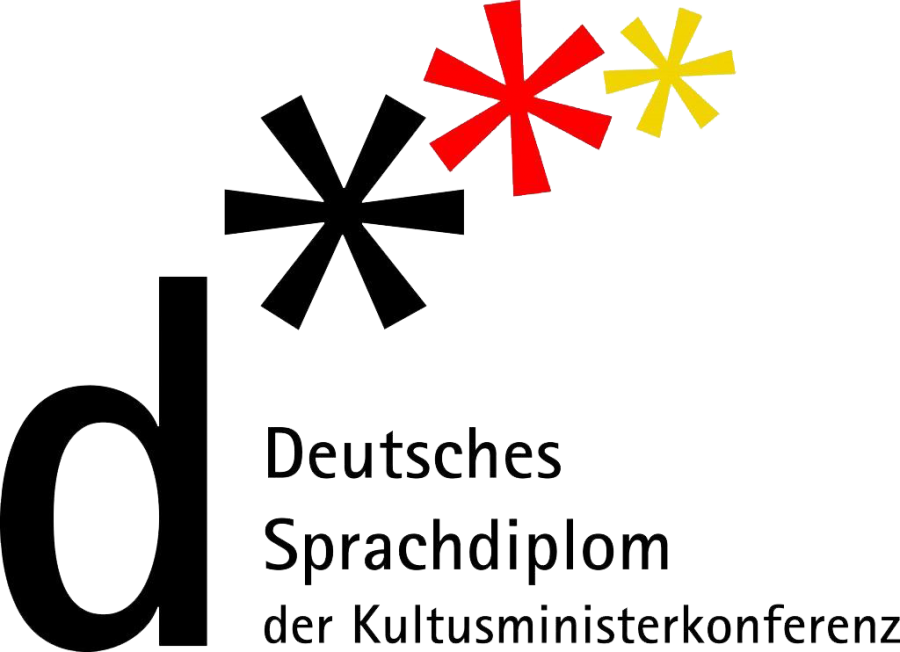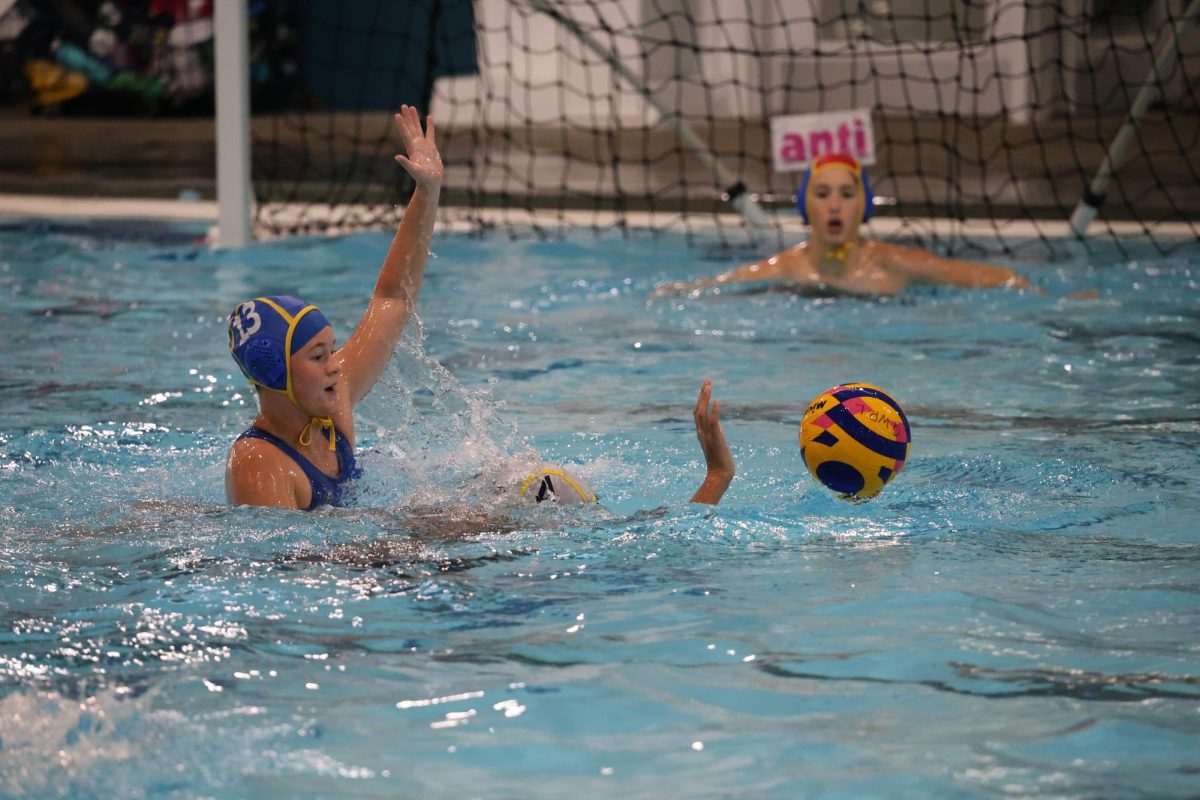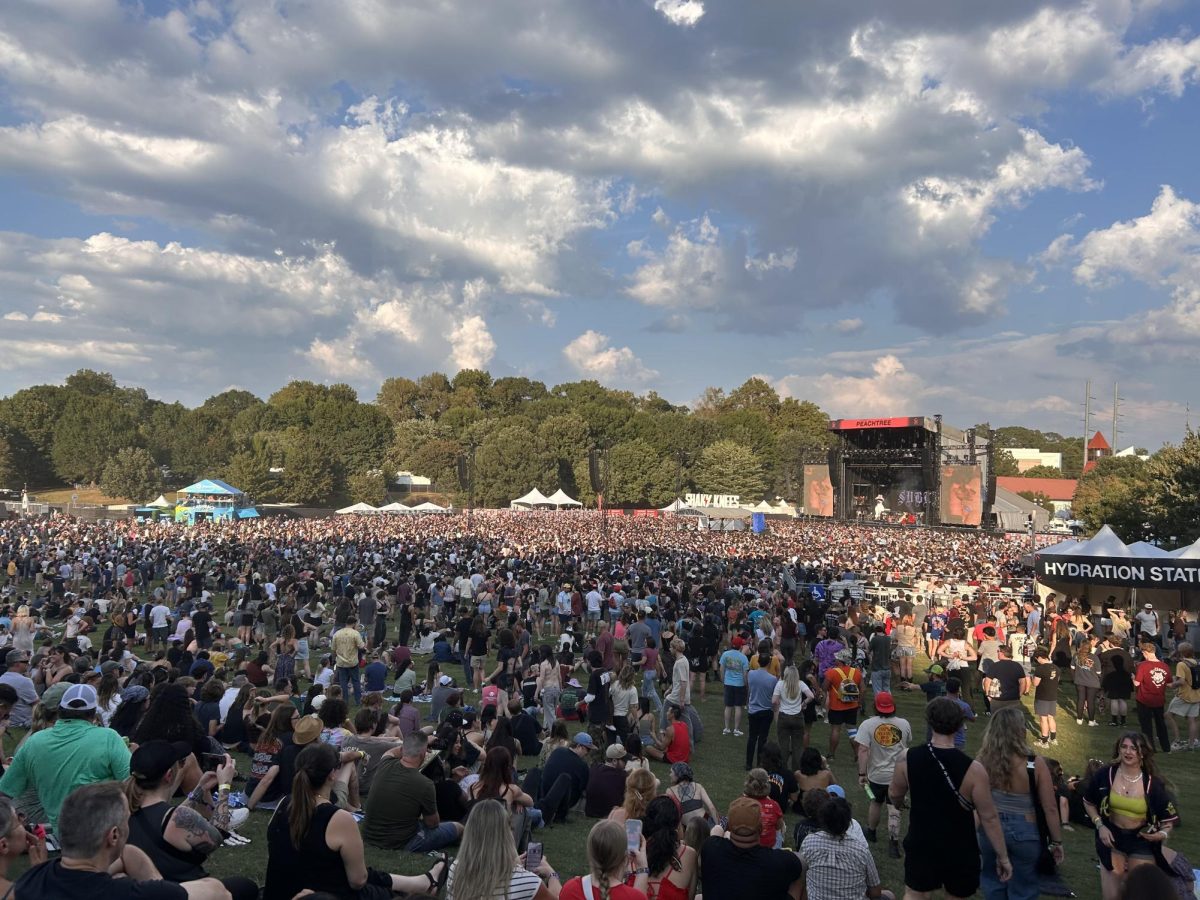Chamblee German Students Test Their Skills
December 18, 2020
In the midst of virtual learning, one thing has stayed the same. This month, the students in the highest level of German offered at Chamblee took the capstone test of their high school education, the DSD II. The test is offered by the German government for non-German students to prove their German fluency. It is typically taken by around fifteen Chamblee students every year.
“The DSD II exam is the highest level of German examination as a second language outside of the country,” said Dr. Yesim Ozbarlas. “So when you take and pass the test, first, you’re able to study like a German at a German University. Second, you prove that you’re like a native German-speaking person. So it’s also good for any kind of a resume for German companies or any international company and also to show for your own sake that you speak like a native person.”
The test is a cumulative assessment of several years of German, so students poured in a lot of effort on their own to prepare.
“I prepared by looking over the assignments my teacher made us do that basically includes studying for the test by looking at the news and studying vocabulary words,” said Sanjeev Anand. “There’s a Padlet or like a slide thing that she had for us all and we also did something on practice tests, where she would assign 10 minutes of those practice tests every day.”
Some students preferred less traditional methods of studying.
“I’ve been reading a lot of German,” said Megan Woo. “I read a couple of German books and then I also have been reading like the Harry Potter German translation. I’ve learned a lot of German through that. Also, just watching random videos and documentaries on YouTube, in German, and podcasts in German. Just pretty much anything I can find. Then kind of like, two weeks before the test, I guess I was yesterday, I started doing a ton of practice tests and writing a ton of practice essays and stuff like that.”
Of course, the students also prepared for the test through their class.
“My classes consist of four components in high-level foreign language acquisition: speaking, writing, discussing, and listening,” said Dr. Ozbarlas. “So we do this the whole time, by reading high-level German newspapers, similar to the New York Times, or Wall Street Journal. We do this by discussing and using the vocabulary they’ve learned out of these texts and listening portions. Then we do this by writing summaries about these articles once a week, basically using all four components for language acquisition in really high, high-level German language acquisition.”
This classroom prep corresponds to the four separate sections of the DSD II.
“There’s the reading, writing, speaking, and listening parts,” said Anand. “The reading part is 75 minutes. It’s like 24 questions. It sounds easy, but it’s really not. You have to consider everything in context. For me, I thought it would be the hardest part. In fact, the listening is the hardest part, in my opinion, because you have to listen to four passages and answer 24 questions on them in a span of about 45 minutes, and you only have 10 minutes to record your answers. So it can get very tough. The writing was 120 minutes, that one was much more lenient, but I averaged something like seven pages of writing. That seemed to be about the right amount, because we did have to write five very long paragraphs. Then finally, the listening was something we had to prepare for in advance. We had to present a topic on the listening and we had to present it and answer questions. Then we had 20 minutes to come up with another presentation of our choice and we had to talk about that.”
This year, there were several wrinkles in the test. For the first time, several juniors were permitted to take the test earlier than senior year.
“It’s my first year teaching,” said Dr. Ozbarlas. “Usually, you take the DSD II after German VI, so the seniors, but because some students are very exceptional in German, and they took it early on, and I could testify that their German was really good, I let them take it even a year earlier. I would usually suggest taking it in German VI, but I had three students this year who were in German V.”
The experience of taking the test early was an uncertain one.
“It’s different,” said Anand. “I don’t know how different it’s supposed to be. As a junior, I actually felt very prepared for the test. I think I did well on the writing portion and whenever my scores come, they’ll obviously say about the reading, writing, and listening portion. It’s an experience. It also allows me to try again a second time next year if I want to. So yeah, I enjoyed it.”
The students taking the test were not the only change this year. As Chamblee students know, all classes, including German, have been virtual this year.
“Of course, we don’t have as much time as before, but my students are exceptional,” said Dr. Ozbarlas. “I knew when I assigned things that they will still continue practicing and doing their work. I have to say they all were exceptional on the DSD oral exam and I just gave the written yesterday. I could see how much they had written and how fast they were finished.”
This online class has also allowed for an opportunity that may not have existed otherwise.
“We had a teacher in Germany, she had just graduated college, and she was helping us prepare,” said Woo. “She joined us through Zoom and our Zoom class, and we would send her essays we would write and get feedback. That was really nice to get feedback on our work. I feel like that might not have been, you know, possible, maybe if we weren’t [virtual] in COVID.”
Despite school being online, the actual test was administered in person, meaning these students returned to the Chamblee building for the first time in months.
“It definitely was weird to go to Chamblee,” said Woo. “Especially because we went on a Wednesday when there should have been a ton of students there. It definitely felt pretty safe, a lot safer than taking the SAT, because there are only 12 of us in total. So we had the oral part on Wednesday and on that day, we only saw, like, a couple students. Then all 12 of us came at the same time yesterday[December 9] to take the rest of the test, but it was pretty distanced. It was definitely distanced and it felt pretty good.”
The DSD II’s prestige means that it can open up a lot of opportunities for students with a high score.
“The biggest benefit is definitely the qualifications in German,” said Anand. “It’s accepted internationally, and by that I mean, obviously in German-speaking countries, to be similar to the German Abitur, which is their final exam. The way they do it is you can actually win a bunch of scholarships and qualify to study in Germany. I’m not planning on doing that, but I definitely want to keep German as my third language. It’s a thing that can help you qualify for higher levels of German. For me, I’d like to continue with German seven and eight. On top of that, it’s just to show how much you’ve studied German. So for me, this is my sixth year of German. So obviously it’s showing how much you’ve developed.”
Even without the scores, the process of preparing for the test has been helpful for some.
“I guess I haven’t really seen the benefits of it yet, because I just took it,” said Woo. “So far through the preparation process, I think it’s just really pushed me to practice German very frequently. Just learning more German has been the main benefit of the preparation.”
No matter what scores come back, the opportunity to take this test alone is a rare opportunity.
“The DSD II exam is only chosen and given in certain schools,” said Dr. Ozbarlas. “You have to have a certain caliber of students to be able to administer the test. Chamblee High is unbelievably lucky to be able to administer this test and have the ability to give the exam.”
Even many colleges do not have students take the DSD II.
“I can tell you at Emory, I used to be a professor there, they don’t administer the test,” said Dr. Ozbarlas. “If you decide at one point, you want to take the test out of nowhere, you have to pay for it and you have to go to the German consulate or to Goethe Institut to be able to take the test. So this is a very lucky situation and any student who doesn’t take advantage of this is not really thinking through this. Any student who is in the German program for a long time should definitely take it.”











